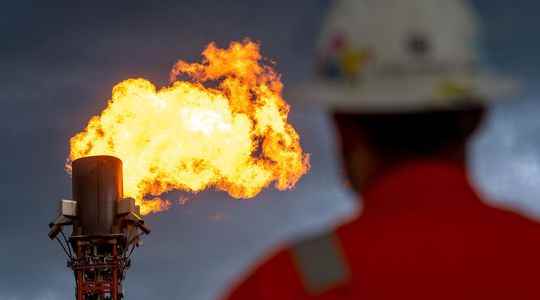Recriminations are piling up in Europe over the invasion of Ukraine. What could we have done collectively to avoid it? To begin by not sending 270 million euros daily to Russia* to buy our oil, our gas and our coal there would undoubtedly have been a good start. This terrible trinity of fossil fuels for which Russia is, in each case, our first world supplier.
The most inadmissible is undoubtedly that since 2014 and the first unmistakable signs of the Kremlin’s expansionist desires in Ukraine, European dependence on Russian gas has increased, from 33 to 38%. The cruellest thing is that it could have been otherwise. As too often in the energy debate, attention is now focused on the issue of the electricity mix alone. This is to quickly forget that in Europe natural gas is primarily consumed for heating purposes in residential and tertiary buildings – for more than 40% of the total in France and Germany, the share devoted to the production of electricity not exceeding 30% on average on the continent.
However, there is an effective and well-known way to reduce the consumption of natural gas in the building sector: energy renovation. The so-called deep renovation techniques, which are based on the complete renovation of a dwelling, allow savings in energy consumption of 75 to 80%. They involve firstly a drastic improvement in the thermal insulation of the walls and the roof of the building, allowing a significant reduction in heating needs. Then comes the installation of an efficient heating system – heat pump or condensing boiler in particular. The sequencing and consistency of these operations are important, in order to avoid the installation of an oversized boiler before having benefited from the savings offered by the insulation.
These ideas are not new. They appeared in the European directive relating to the energy performance of buildings in 2010. Closer to home, the objective of 500,000 annual energy renovations emerged in France from the first Grenelle de l’environnement in 2008. This target was never reached. under the mandate of Nicolas Sarkozy, the annual rate does not exceed the bar of 100,000 homes renovated in depth. Never mind, the law on energy transition and green growth of 2015 will reiterate this figure and give it the force of law. Alas, the annual volume of renovations has still not taken off when François Hollande leaves the Élysée. The Energy-Climate Law of 2019 confirms the objective, however, and reinforces it further by aiming this time for carbon neutrality for all residential and tertiary parks by 2050.
Result of these ambitions so often trumpeted, so rarely applied: the gas consumption of French buildings increased by 6% between 2014 and 2019 – and almost double for the whole of the European Union. To get rid of our dangerous addiction to Russian gas, it is imperative to finally apply the objectives that we have been displaying for more than ten years. The regulatory frameworks exist – it is the funding and capacity within the construction industry that is lacking today. The “strategy for a wave of renovations” launched in 2020 by the European Commission must be accelerated. Beyond the climate imperative, the energy transition – and particularly its renovation component – became on February 24 a question of European sovereignty and security.
The European Union, deprived of significant gas and oil reserves, can only benefit from the abandonment of fossil fuels – unlike the other great powers. In addition to the necessary reduction in our emissions, the energy transition improves our trade balance, and above all removes us from the mercy of authoritarian regimes that can suddenly become enemies. Massively accelerating the renovation of European buildings is one of the pillars that will allow us to definitively strengthen our collective resilience in the face of future energy shocks, and to dry up the financial resources that maintain the Ukrainian martyr today.
* Source for the entire article: Eurostat, 2021 data.
